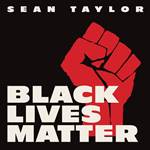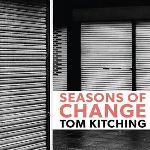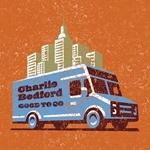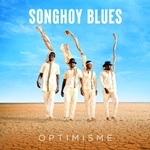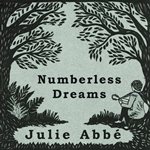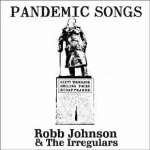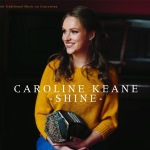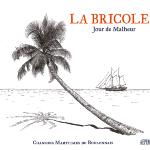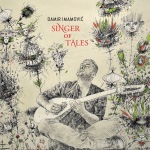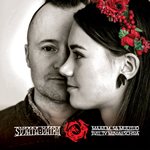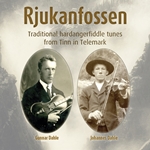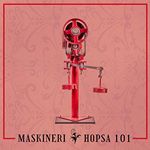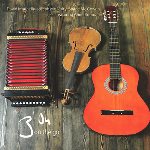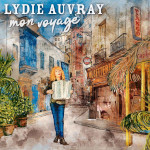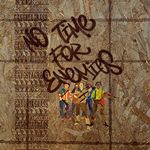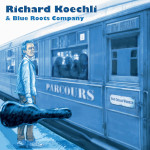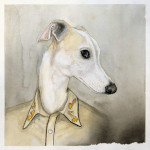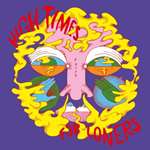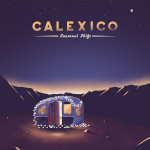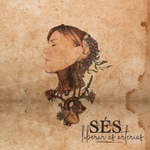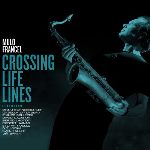»This album is designed to be listened to continuously from beginning to end!« (Ross Ainslie)
»There aren’t many people putting this kind of work into album packaging these
days, as the CD slides into obsolescence; the jacket gets reduced to a
sleeve, and finally, to the purely ephemeral: a thumbnail digital image
serving as an “album cover” for a thing that’s no longer an album, with
no need of a cover. You might ask what could be the point in swimming upstream
against such an overwhelming current, and I can’t say you’d be wrong.
Plenty of bands nowadays are just releasing singles, as a way to stay
current in an increasingly crowded market, and it may be that the
whole notion of an “album” is on its way out. The CD, at least, is
clearly going the way of the 8-track, as new computers and cars don’t
come with players anymore, and having a physical music library of any
kind seems to make less and less sense. But from where I sit, I still see
plenty of reasons to keep making physical albums, whether they’ve got
a CD inside or not. For one, my fans still buy them. They’re glad I’m out there
doing what I’m doing, and they want to keep me on the road. Most
of those sales are happening face to face, in the intermission of shows,
in theatres, halls, or living rooms, where the people want something
tangible to take home as a reminder of the night. Most of my fans
are old enough to remember the tactile pleasure of liner notes, and
the thrill of discovery in reading the names and the stories behind the

songs. So much of my musical education happened that way, on the
living room floor, with my parents’ record collection and the albums
I scavenged from garage sales for a dollar or two apiece. Most of my
fans think it’s unfair that the workers in song (or those of us left)
should put so much work into writing, recording, and releasing songs,
only to be paid in fractions of cents by the listeners who enjoy them.
And most of the old folkies who host programs on college and community
radio still want the physical thing.
But there’s something bigger behind the commitment to keep
making albums, and that’s the conviction that something valuable is
being lost in the way we experience recorded music. Putting a record
on was a more deliberate thing when you got to take it out of its
sleeve, put it on the turntable, and lay the needle in the groove. Back
in my university days, my friends and I used to get stoned, turn off
the lights and listen to whole album sides at a time without talking.
At half-time we’d go in the kitchen to do some more hot-knives and
talk about what we’d heard, then we’d go back to the living room and
listen to the other half. When we developed better social skills and
weren’t quite such a bunch of stoner weirdos, we’d play records while
hanging out with friends. It meant something to put a record on.
Even when somebody was DJing, they were going through albums to
pick the right track to follow the one playing, whether that was about
keeping people dancing, or just setting a mood. Nowadays, most of
the playlists we hear aren’t even made by humans, they’re put together
by algorithms. They’re not telling a story. The songs come from out of
nowhere. They don’t tell us who recorded them, or where, or when.
An album, by contrast, was a set of songs that went together.
They usually came from one session or series of sessions, with a group
of players––they were a snapshot of a band at a particular place and
time. Some songs got chosen, others got left out, and they were put in
a deliberate order, to tell a story.«
(Scott Cook)

»Someone once told me that making vinyl is like making cakes! You have the same ingredients and the same temperature, but other slight variables get in the mix which mean that no cake is ever the same. The same is true of our vinyl’s:
each one will sound slightly different in terms of frequency and sound. And... everything sounds better on vinyl! We put a lot of thought into the artwork and photos
and were inspired to see the quality of this in large format on a vinyl cover and sleave. Also, it's beautiful to watch the bowl on the vinyl label spin as it plays!«
(Will Roberts, iyatraQuartet)
»To me, having a vinyl is making a commitment to your favourite records and artists - it's a promise that says 'I want to give this music its best chance to come alive, and each time I put the record on will be an event.«
(Rich Phillips, iyatraQuartet)
»When Chancellor of the Exchequer Rishi Sunak suggested artists should retrain, I had to laugh (or I'd cry), as this year I've done very little
songwriting and playing music but an awful lot of other related activities, such as marketing, accounting, oh and video editing, lots of that.«
(Paul Armfield)




